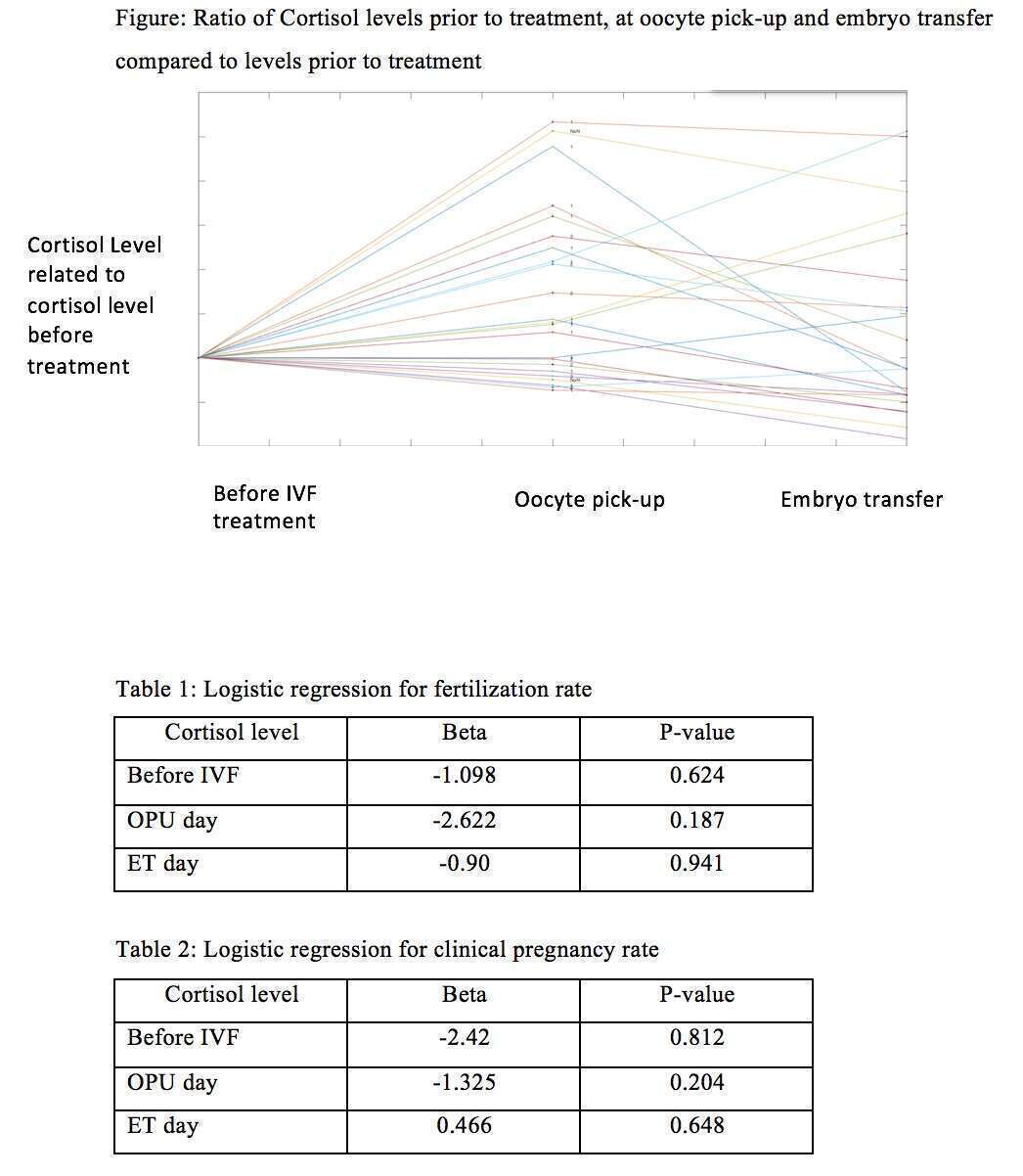
Does Stress Affect IVF Outcomes? A Prospective Study Assessing Cortisol Levels and Stress Questionnaires for Women Undergoing IVF
2Faculty of Medicine, Tel Aviv University
Introduction: Fertility treatments are known to be associated with emotional stress. Yet, it remains unclear whether stress has an effect on in vitro fertilization (IVF) cycle outcomes.
Aim: To evaluate the effect of perceived stress on fertility outcomes among women undergoing IVF.
Methods: A prospective cohort study of women undergoing IVF was conducted. Salivary cortisol as well as stress questionnaires, including State-Trait Personality Inventory (STPI), The State-Trait Anxiety (STAI) and Hospital Anxiety and Depression (HADS) questionnaires were measured: 1) Prior to IVF treatment, 2) Day of oocyte pick-up (OPU), and 3) Day of embryo transfer (ET). In addition, follicle cortisol levels were measured on OPU day. Associations between stress levels (cortisol and questionnaires) and fertility outcomes, including number of retrieved oocytes, number of embryos, embryo quality, fertilization rate and pregnancy rate were analyzed.
Results: Salivary cortisol levels were highest on OPU day as compared to before treatment and on ET day. This trend was stronger for women undergoing their first IVF compared to women who had previous IVF (Figure A). Stress levels were not associated with fertilization rates, embryo quality or clinical pregnancy rates (See table 1,2). Follicle cortisol levels were negatively correlated with number of eggs retrieved (r=-0.287, p=0.056).
Conclusion: Although cortisol levels increase during IVF treatment and are highest on OPU day, this elevation was not associated with IVF cycle outcomes. These findings might reassure women who are concerned that stress levels could affect IVF outcomes.


Powered by Eventact EMS